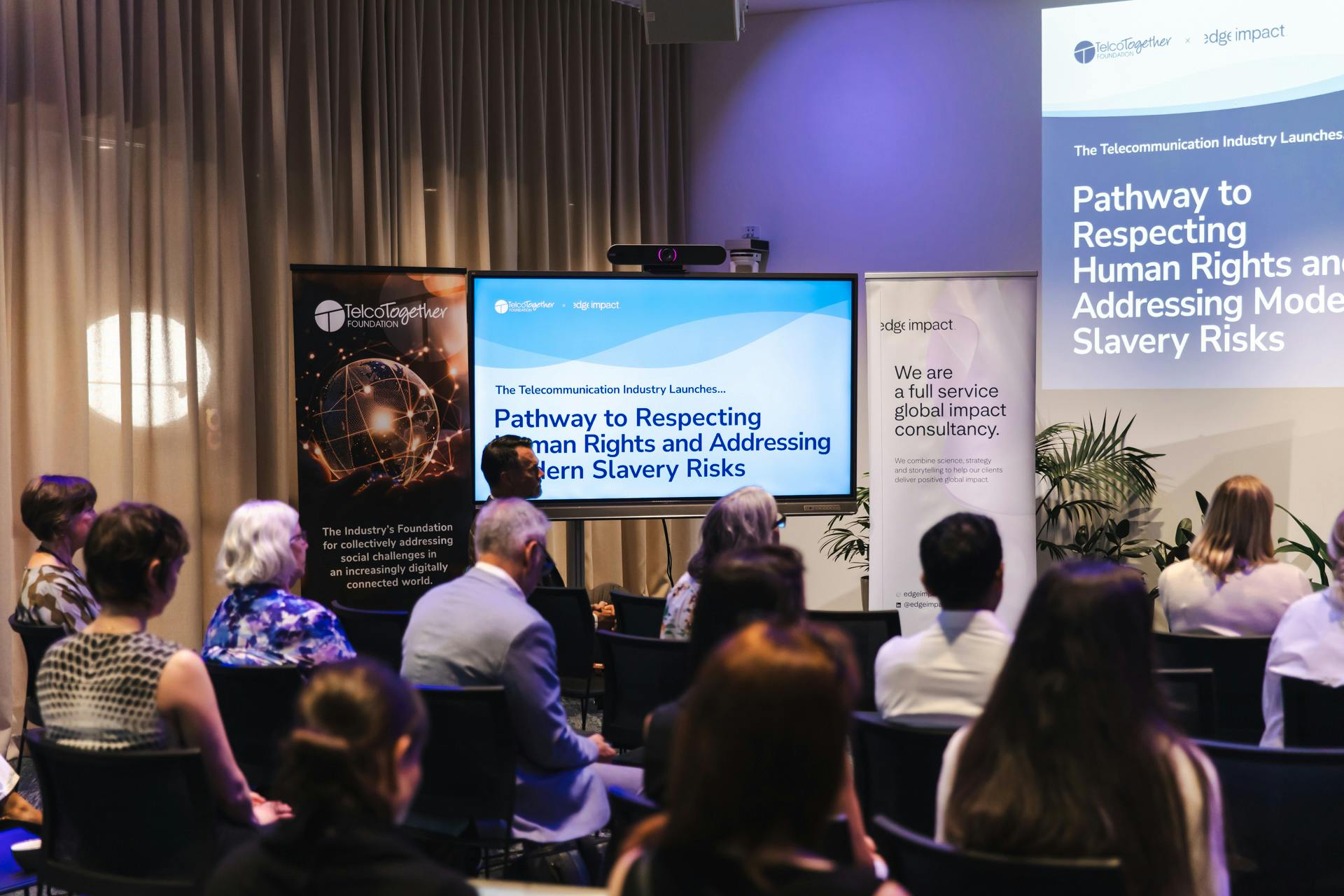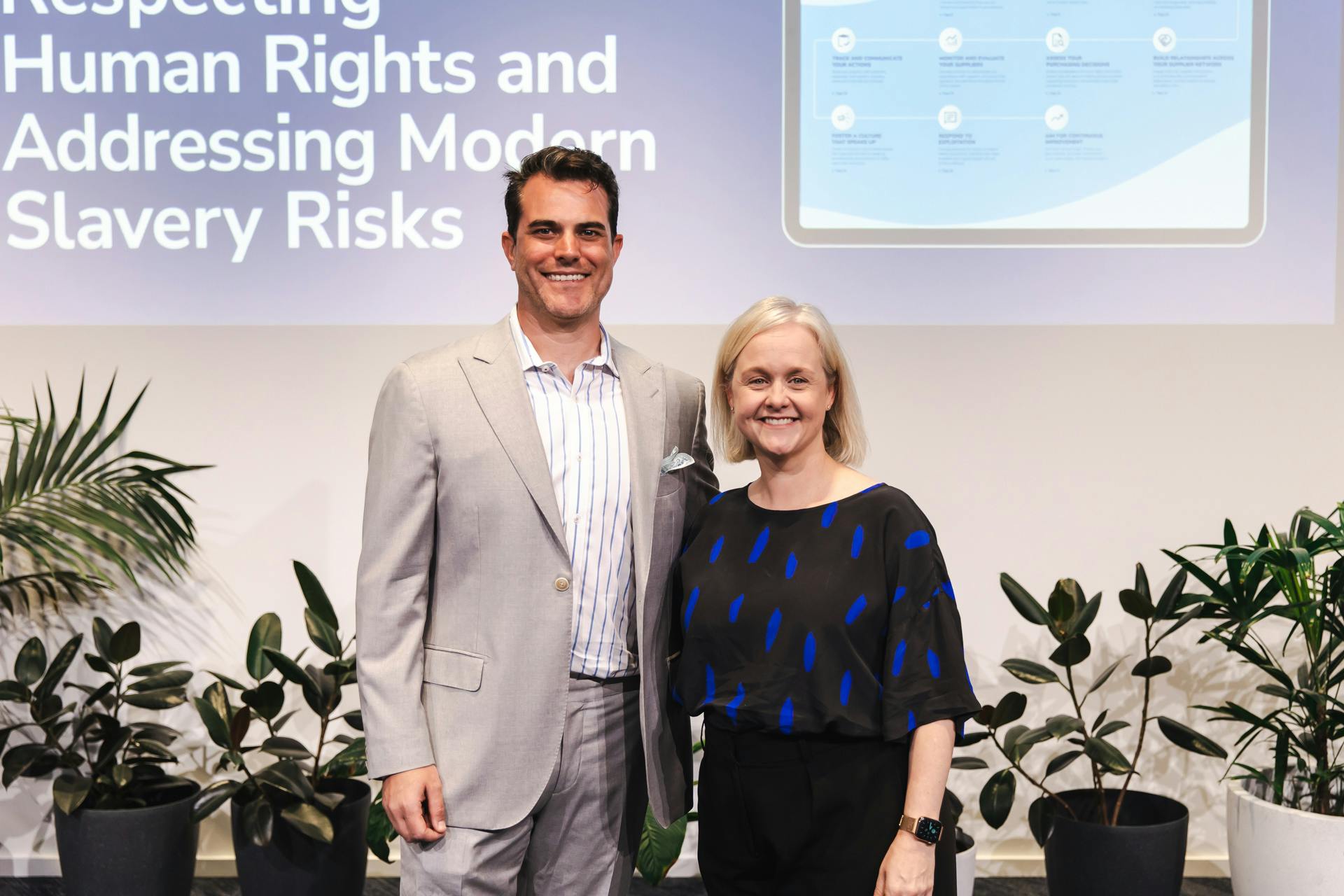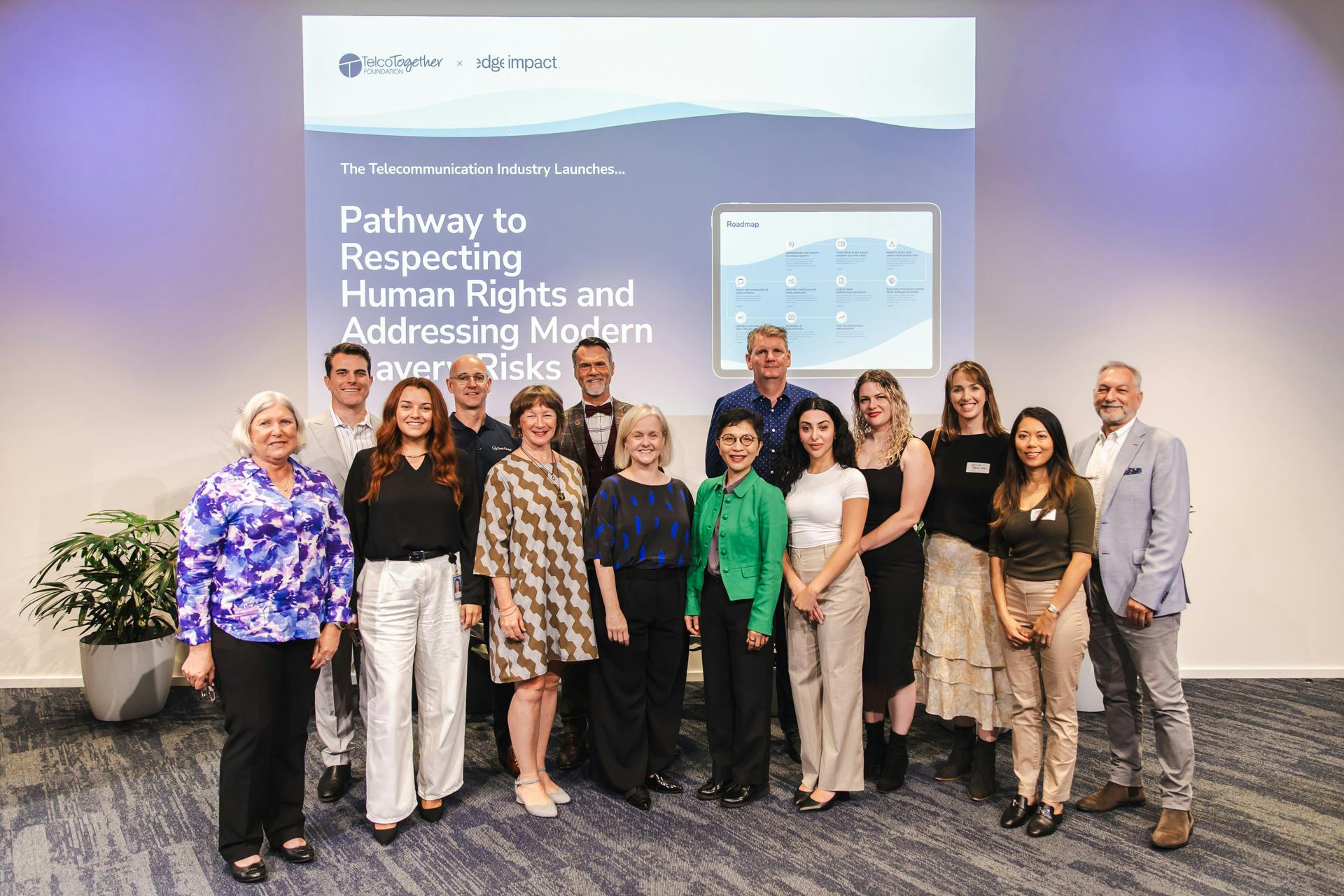Pathway to Respecting Human Rights and Addressing Modern Slavery Risks
This Pathway represents a call to action; you can use it to support human rights and work to eliminate modern slavery in your organisation and the telecommunications industry.

Respecting human rights and addressing modern slavery is a shared responsibility across the telecommunications industry, and all players, no matter how large or small, have an important role to play.
Telco Together Foundation in collaboration with Edge Impact and Foundation members Telstra, Optus, TPG Telecom, Aussie Broadband and Superloop have produced this Pathway to Respecting Human Rights and Addressing Modern Slavery Risks.
The Pathway handbook tailors each step to enable telcos of all sizes to respond to modern slavery risk and take meaningful action.
We invite you to use the Pathway to support human rights and work to eliminate modern slavery in your organisation and the telecommunications industry.
Modern slavery in our supply chains isn't just a possibility — it's a reality that demands our immediate attention.
Through education, awareness, and collaboration, we empower Australian businesses to connect with the resources needed to combat these risks head-on.
Nick Dexter
Principal, Human Rights & Social Impact

How to Use the Document
This pathway serves as a comprehensive guide for businesses ready to tackle human rights challenges head-on. Here's how your organisation can utilise it to catalyse change:
- Benchmark Your Position: Utilise the checklists provided in each section to gauge your current stance on the pathway's steps.
- Get Inspired: The pathway is enriched with case studies showcasing how diverse businesses are advancing on their sustainability journeys.
- Expand Your Knowledge: Each section is accompanied by curated references and resources, offering deep dives into specific areas of interest.
- Foster Collaboration: Share the pathway with your supply chain partners to promote a shared understanding and commitment to human rights and sustainability.
Incorporating these steps into your strategy not only propels your organisation forward on its sustainability path but also contributes to a larger movement towards ethical business practices globally.
Taking Action
Embark on this journey with us.
Download the Pathway document, engage with its insights, and begin translating knowledge into action.
Whether you are a small business navigating these waters for the first time or a multinational enterprise looking to refine your strategies, the Pathway is your blueprint for meaningful change.
Click here to download the Pathway document.
(Download will start automatically)


To learn more about the Pathway, or to discuss how we can support your journey towards respecting human rights and addressing modern slavery risks, get in touch with us at nick.dexter@edgeimpact.global.
Related articles



Disclaimer: The information provided in this document is general in nature and does not constitute legal or financial advice. Organisations that are required to comply with these emerging regulations should obtain their own independent legal and financial advice about their reporting requirements.




